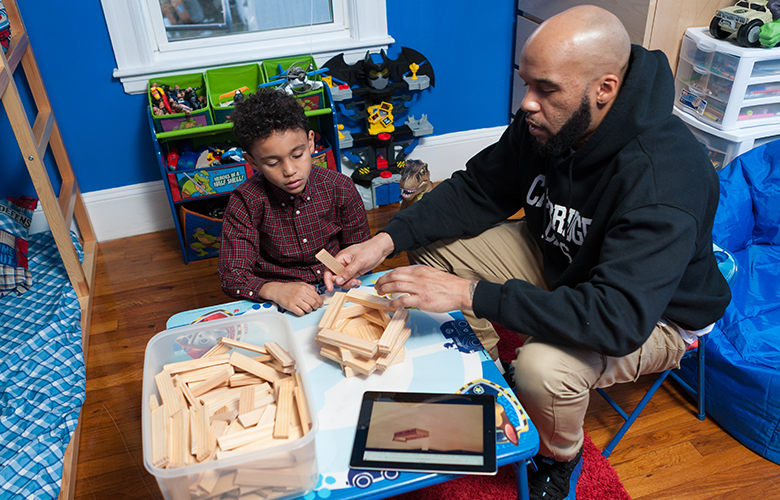
One positive aspect of the COVID-19 pandemic is that the virus doesn’t seem to affect children the same way it affects adults. However, children are susceptible to stress caused by disrupted schedules, changing routines, and universal talk about the virus. The best thing you can do for your child is to manage your own stress. Use cdc.gov as a resource, focus on what you can do to keep your home safe, and when you need to share your anxiety, seek out other adults. To support your child more directly, consider these tips.
Be honest at a level appropriate for your child. Children worry more when we avoid talking about the obvious, so resist the temptation to say everything’s fine. Listen for concerns that arise in their play. Invite them to express their thoughts and feelings by asking, for example, “What have you heard about people getting sick?” or “Are you mad that you can’t see your friends?” When you give information, consider how you would answer the question “Where do babies come from?” Be honest, but tell them only as much as they want and need to know.
Mediate your child’s access to news. Keep in mind that your child does not have the same context you do for processing the news, which makes statistics about people getting sick and dying especially scary. Act as a buffer by limiting the quantity of news your child hears—even in the background. Supervising their media use also helps you anticipate and address any concerns it may raise.
Focus on “helpers” and what your child can do. Your young child’s concerns are apt to be more egocentric than your own—why can’t I go to soccer practice and why do I have to keep washing my hands? Take a note from Mr. Rogers’ playbook. Remind your child that lots of helpers—including you—are working to keep them safe and healthy. Let them know that by washing their hands properly, they can be helpers too.
Get moving. Physical activity, especially outdoors, can reduce stress for adults and children. Hundreds of state parks remain open and enable visitors to maintain social distancing. If you can’t get to a park, walk around the block in less populated areas, or try exercising, dancing, or doing yoga with your child using an app such as GoNoodle.
Most important, remember that you are your child’s primary role model. Chances are, if you are calm and reasonable in your response to the pandemic and mitigation efforts, your child will try hard to follow your lead. Of course, lots of hugs and assurances that life will get back to normal are also especially welcome!
| Cindy Hoisington, an early childhood educator and researcher, develops authentic, playful science and language experiences for children and creates supports for their families and teachers, with a focus on marginalized communities. |

Add new comment